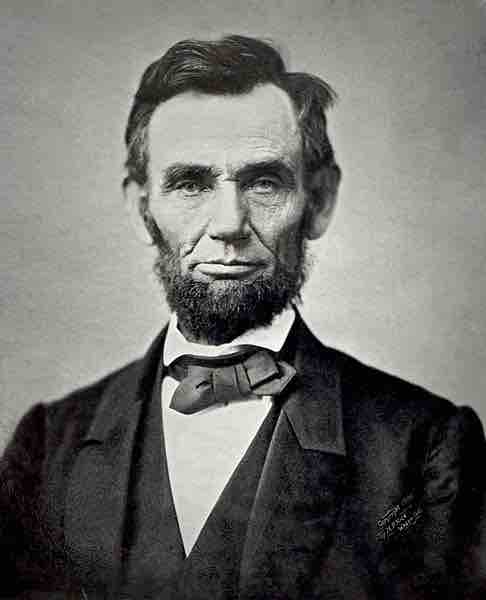Republican Party
The Republican Party is one of the two major political parties in the United States, along with the Democratic Party. Founded by anti-slavery activists in 1854, it dominated politics nationally for most of the period 1860-1932. Eighteen presidents have been Republicans; most recently, George W. Bush.
Currently the party's platform generally reflects American conservatism in the U.S. political spectrum. American conservatism of the Republican Party is not wholly based upon rejection of the political ideology of liberalism, as many principles of American conservatism are based upon classical liberalism. Rather the Republican Party's conservatism is largely based upon its support of classical principles against the modern liberalism of the Democratic Party that is considered American liberalism in contemporary American political discourse.
History
Founded in the Northern states in 1854 by anti-slavery activists, modernizers, ex-Whigs and ex-Free Soldiers, the Republican Party quickly became the principal opposition to the dominant Southern Democratic Party. The main cause was opposition to the Kansas–Nebraska Act, which repealed the Missouri Compromise by which slavery was kept out of Kansas. The Northern Republicans saw the expansion of slavery as a great evil.
By 1858, the Republicans dominated nearly all Northern states. The Republican Party first came to power in 1860 with the election of Lincoln to the Presidency and Republicans in control of Congress and again, the Northern states . The Republicans were cemented as the party of business, though mitigated by the succession of Theodore Roosevelt who embraced trust busting. The party controlled the presidency throughout the 1920s, running on a platform of opposition to the League of Nations, high tariffs, and promotion of business interests.

Abraham Lincoln
Abraham Lincoln was the first Republican president.
The second half of the 20th century saw election or succession of Republican presidents Dwight D. Eisenhower, Richard Nixon, Gerald Ford, Ronald Reagan, George H. W. Bush and George W. Bush. The Republican Party, led by House Republican Minority Whip Newt Gingrich campaigning on the Contract with America, was elected to majorities to both houses of Congress in the Republican Revolution of 1994.
In the 21st century, the Republican Party has been defined by social conservatism, a preemptive war foreign policy intended to defeat terrorism and promote global democracy, a more powerful executive branch, supply-side economics, support for gun ownership, and deregulation.
Name and symbols
The party's founding members chose the name "Republican Party" in the mid-1850s as homage to the values of republicanism promoted by Thomas Jefferson's Republican Party. The traditional mascot of the party is the elephant. A political cartoon by Thomas Nast, published in Harper's Weekly on November 7, 1874, is considered the first important use of the symbol. After the 2000 election, the color red became associated with the GOP when on election night, for the first time, all of the major broadcast networks used the same color scheme for the electoral map: red for states won by Republican George W. Bush and blue for Democrat Al Gore.
Ideology and political positions
The Republican Party includes fiscal conservatives, social conservatives, neoconservatives, moderates, and libertarians. Prior to the formation of the conservative coalition, which helped realign the Democratic and Republican Party ideologies in the mid-1960s, the party historically advocated classical liberalism, paleo-conservatism, and progressivism.
Neoconservatism
Neoconservatism is an intellectual movement born in the 1960s inside the monthly review Commentary. Neoconservatism is critical of the so-called welfare state as conceived by the New Left but supportive of the New Deal and moderate welfare statism, offers lukewarm applause for free markets, and advocates "assertive" promotion of democracy and American national interest in international affairs including by military means. Presidents Ronald Reagan, George H.W. Bush, and George W. Bush had neoconservative advisors regarding military and foreign policies. During the George W. Bush administration, neoconservative officials of the Departments of Defense and State helped to plan and promote the Iraq War.
The Bush campaign and the early Bush administration did not exhibit strong endorsement of neoconservative principles. Bush's policies changed dramatically immediately after the September 11, 2001, attacks. During Bush's State of the Union speech of January 2002, he named Iraq, Iran, and North Korea as states that "constitute an axis of evil" and "pose a grave and growing danger". Bush suggested the possibility of preemptive war: "I will not wait on events, while dangers gather. I will not stand by, as peril draws closer and closer. The United States of America will not permit the world's most dangerous regimes to threaten us with the world's most destructive weapons.